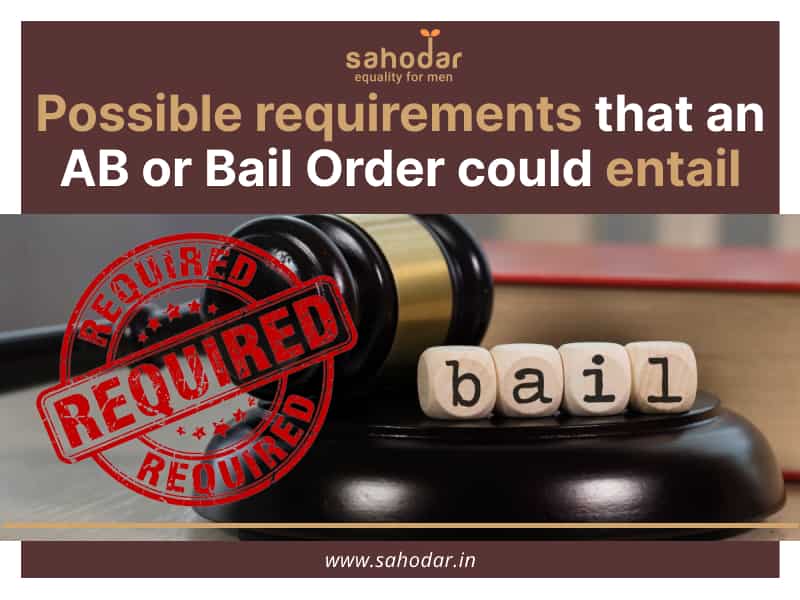An Overview of Bail Requirements
When a judge grants someone bail during a trial, they have the authority to impose restrictions on the person’s movement while they are out on bail. These conditions can be determined at the judge’s discretion and can vary from case to case. The Criminal Procedure Code, specifically sections 437 and 438, grants the judge this power. Section 437 applies to individuals who have already spent some time in custody and have managed to obtain bail, while section 438 pertains to those who have applied for and received anticipatory bail. However, section 437 has been criticized for its poorly written language and lack of clarity.
An Analysis of Potential Criticisms Regarding Bail Conditions under Section 437 of CrPC
Section 437 of the Criminal Procedure Code lays down mandatory conditions that must be followed when bail is granted for certain types of offenses, such as those against the state, human body, and property. These conditions also apply to those accused of attempting, conspiring, or abetting these offenses, or for offenses that carry a jail sentence of seven years or more. The judge does not have the power to refuse to impose these conditions.
There are three conditions that must be followed under Section 437
The first condition is that the person who is bailed out must follow all the conditions mentioned in the bail bond. However, the wording of the provision is confusing, as it refers to the various chapters of the Indian Penal Code (IPC) in the paragraph. A clearer law would have stated “bail bond executed by him under this chapter of the CrPC” instead of “bail bond executed by him under this chapter”.
Essentially, this condition gives the judge the power to set any legally permissible condition, rather than providing a fixed set of conditions
The second condition under Section 437 is that the person being granted bail must not commit a similar offense to the one they are accused of, or any other offense for that matter. However, the phrase “of the commission of which he is suspected” is unnecessary and confusing. This condition is also deemed unnecessary for an adult, as it is common sense not to commit a crime while out on bail.
Many falsely accused men find it ironic that the clause allowing them to be bailed out after being falsely accused can actually be dangerous. This is because if they are falsely accused again, they can end up back in prison. However, sections 437 and 438 of the CrPC offer some limited protection to the accused if they haven’t been convicted of certain offenses in the past. To learn more about the AB procedure, read the article on this page.
One of the conditions for being released on bail is entirely reasonable and sensible: the accused person must not threaten or bribe anyone who knows the facts of the case or tamper with evidence. Following this requirement closely can help bolster the falsely accused person’s credibility in the eyes of the law.
Although section 437(3) of the CrPC grants judges the power to impose additional conditions in the interests of justice, this is redundant since the power is already granted in clause (i) of the same section.
It is important to remember that IPC 406 is a provision for punishing crimes against property and is part of chapter 17 of the IPC. Therefore, if you apply for bail after being in custody, the judge must set the three conditions mentioned in section 437 of the CrPC.
An evaluation of potential terms for release under Section 438 of the Criminal Procedure Code.
The aforementioned are the conditions that apply when obtaining bail without anticipation. Anticipatory bail is governed by Section 438 of the CrPC, which sets out the conditions that can or must be imposed by a court that grants anticipatory bail to an accused person. One of the clauses in Section 438 (1b) (iv) may lead a careless reader to believe that all the conditions in Section 437 must be imposed on anyone who obtains anticipatory bail in a 498a case. However, the word “may” in this clause means that the court has the power to impose any conditions it deems appropriate. None of the clauses in Section 437 are mandatory, which is why anticipatory bail is highly sought after and typically a better option for the accused than post-arrest bail.
The other three clauses in this section are not compulsory either. The first condition requires the person to make themselves available for police interrogation when needed, while the second prohibits the accused from influencing witnesses or tampering with evidence. The third condition, which prevents the person from leaving India without prior court permission, is relevant to many 498a accused who are NRIs or PIOs. To avoid this condition, the accused’s lawyer should request in the application that the court not impose this condition if it decides to grant anticipatory bail. The legislature may have refrained from making the first condition mandatory to minimize the police’s discretionary powers.

